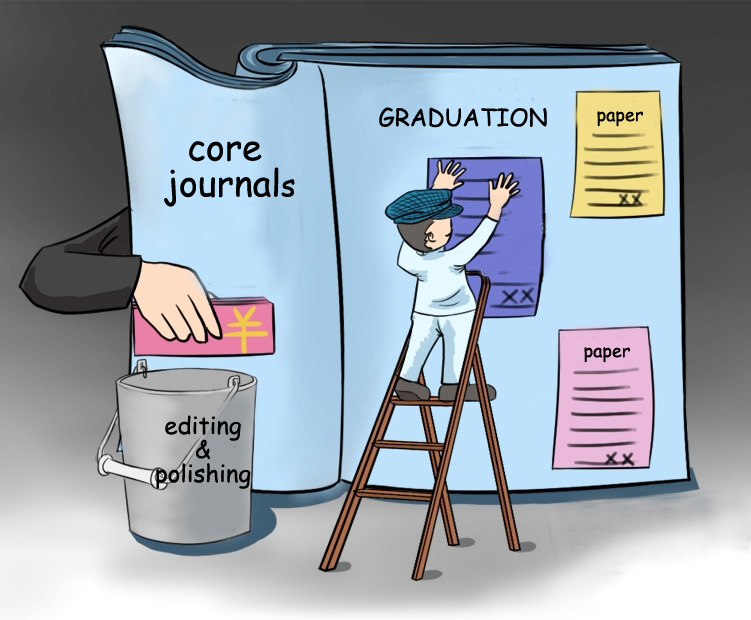Scholars: Graduate education should value quality, not publication

Scholars said that some students even pay to get published, which only corrupts the academic climate and feeds greedy publishers.
Today, doctoral students and even some graduate students are required to publish papers in core journal publications in order to graduate.
Is this unrealistic, or does it aid students’ research and writing abilities? Scholars have said that more emphasis should be placed on writing rather than publishing, while diplomas should not strictly be tied to core journals.
Third -party academic evaluations
Some doctoral students said it was a challenge and an encouragement for them to publish their articles, whereas others expressed concerns and seemed to be overwhelmed by the requirement.
Hu Hongying, vice-dean of the Tsinghua University Graduate School at Shenzhen, said that the move is intended to help students enhance writing skills, strengthen research communication and increase the scientific value of their work while lifting up higher education institutions’ academic influence.
Han Donghui, vice-dean of the School of Philosophy at Renmin University of China, said that in order to push students to produce high-quality dissertations, higher education institutions have to raise the bar for graduation, one of which could be asking students to publish their work, Han said.
However, Jia Yongtang, a professor from the Institute of Education Sciences at Huazhong University of Science and Technology in Hubei Province, cautioned that such requirements could also be attributed to the fact that some universities want to gain additional benefits for themselves rather than students, such as improvements to research performance statistics and the reputation of the school as well as that of the instructors.
Distracted focus
However, in reality, the requirement is quite a burden for students.
Xiong Qingnian, director of the Research Institute of Higher Education at Fudan University, said that different disciplines have different ways of producing results, and the presentation and form of results also vary. Simply put, rigid requirements could easily lead to the pursuit of instant success and loss of academic perseverance.
Han said that under the current circumstances, the importance of writing articles has given way to the urgency of publishing in core journals. However, due to differences in the quality and quantity of academic publications, the requirement is pressuring students to look for shortcuts, causing a decline in quality and imbalances between disciplines.
“Regardless of the original purpose, the rigid requirement causes more negative than positive consequences,” Jia said, adding that master’s degree students are in a phase of academic accumulation, and they need more learning and practicing rather than displaying.
Some students even pay to get published, which cannot help elevate academic capability, Jia said. “It will only corrupt the academic climate and feed greedy publishers,” he noted.
Stressing writing, not publishing
Scholars suggested that more scientific and flexible requirements concerning publishing in core journals should be formulated, and the ultimate goal is to improve students’ writing and research abilities.
Han said that on the one hand, the existing system of academic journals should be refined, while on the other hand, higher education institutions should enhance article reviews, step up writing requirements and lower publication requirements to encourage graduate students to publish at academic conferences, gradually replacing the core journal publication requirement.
“For universities, it is crucial to locate the root of the problem and prevent academic publication from becoming a tainted process,” Jia said. If universities can make sure each aspect of master’s or doctoral programs meet the basic requirements, excellent graduate students will surface and high-quality publications will naturally come along, Jia said.
Pan Yuefei is a reporter at the Chinese Social Sciences Today.

 PRINT
PRINT CLOSE
CLOSE